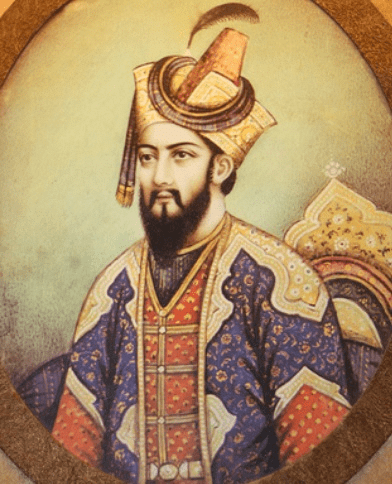Bank Exams Exam > Bank Exams Notes > IBPS PO Prelims & Mains Preparation > The Idea of Kingship & the Nobility: The Delhi Sultanate
The Idea of Kingship & the Nobility: The Delhi Sultanate | IBPS PO Prelims & Mains Preparation - Bank Exams PDF Download
The Idea of Kingship
During the reign of Iltutmish, the position of the sultan was not considered much higher than that of a noble. He treated the great Turkish nobles as his equals.
 Iltutmish
Iltutmish
- Balban placed the monarchy at a higher level than the nobility.
- Ala-ud-din Khalji allowed himself to be dominated by dreams of exacted monarchical power.
- Ghiyasuddin Tughlaq was extremely social in relations with the nobles.
- In regard to obedience to the Shariat and submission to the guidance of the Ulema, Firuz Tughlaq reversed the policy of Ala-ud-din and thereby weakened the monarchy.
- Under the Lodis, kings assumed a new complexion; the racial basis, which had been weakened by the Khaljis and the Tughlaqs, was restored.
Points To Be Remembered
- Bhima-II, the Solanki ruler of Gujarat, was the first Indian ruler to defeat Muhammad of Ghur.
- The Quwwat-ul-Islam mosque in Delhi of the period of the Slave Dynasty was originally a Vishnu temple.
- Bhaktiyar Khalji, the military officer of Muhammad of Ghur, was responsible for bringing Bihar and Bengal under Muslim rule.
- The original name of Balban was Ulugh Khan.
- Nasiruddin Khugrau was the only Hindu convert to Islam to sit on the throne of Delhi Sultanate.
- The Turks eschewed the representation of human and animal figures in the buildings.
- They used geometrical and floral designs, combining them with panels of inscriptions containing verses from the Quran. The combination of these decorative devices was called “Arabesque”.
The Nobility
- In the thirteenth century, the nobility was composed of persons of foreign origin but they belonged to two distinct groups: the Turkish slave-nobles and the non-Turkish (taziq) foreigners of high birth who immigrated to India from Central Asia and West Asia in search of fortune.
- Of the two groups of nobles, the Turks were stronger and they claimed a monopoly of high offices in the state.
- Alauddin ignored the racial and hereditary claims of the Turks and conferred high offices on nobles whom he considered efficient and trustworthy, but he tried to break their solidarity by stern measures.
- With a view to weakening the old nobility, Muhammad-bin-Tughlaq set up a new order of office-holders of heterogeneous racial origins.
- The reign of Firuz Tughlaq was a period of harmony between the Crown and the nobility.
- Under the Lodis, the Sultanate became, in effect, on the partnership between the crown and the mobility.
Points To Be Remembered
- The Delhi Sultans are credited with introducing the institution of ‘Dalals’ in India to facilitate commercial transaction on a large scale.
- With the introduction of sericulture in India by the Turks, the Indian silk industry received a boost.
- The origins of differentiation between the Hindustani and the Carnatic school of music can probably be traced to the period of the Delhi Sultanate.
- The Delhi Sultan who introduced plebian elements in his nobility was Muhammad-bin-Tughlaq.
- Firuz Tughlaq ordered the translation of a large number of Hindu religious works from Sanskrit to Persian
The document The Idea of Kingship & the Nobility: The Delhi Sultanate | IBPS PO Prelims & Mains Preparation - Bank Exams is a part of the Bank Exams Course IBPS PO Prelims & Mains Preparation.
All you need of Bank Exams at this link: Bank Exams
|
541 videos|681 docs|263 tests
|
FAQs on The Idea of Kingship & the Nobility: The Delhi Sultanate - IBPS PO Prelims & Mains Preparation - Bank Exams
| 1. What is the concept of kingship? |  |
Ans. Kingship refers to the system or institution of having a king as the ruler or monarch of a kingdom or territory. It involves the exercise of supreme authority and power by a single individual who holds the title of king.
| 2. How does the concept of kingship relate to the nobility in the Delhi Sultanate? |  |
Ans. In the Delhi Sultanate, the concept of kingship was closely tied to the nobility. The nobility consisted of the aristocrats, courtiers, and military officials who served the king and held positions of power and influence. They played a crucial role in supporting and upholding the institution of kingship.
| 3. What role did the nobility play in the Delhi Sultanate? |  |
Ans. The nobility in the Delhi Sultanate held significant power and influence. They served as advisors to the king, governed different regions of the kingdom, commanded the armies, and administered justice. They were responsible for maintaining law and order, collecting taxes, and ensuring the smooth functioning of the kingdom.
| 4. How did the idea of kingship shape the governance of the Delhi Sultanate? |  |
Ans. The idea of kingship in the Delhi Sultanate shaped the governance by establishing a hierarchical system with the king at the top. The king held absolute power and authority, and his decisions were considered final. The nobility played a crucial role in supporting the king's rule and implementing his policies, thereby ensuring the stability and functioning of the kingdom.
| 5. What was the significance of the relationship between the king and the nobility in the Delhi Sultanate? |  |
Ans. The relationship between the king and the nobility in the Delhi Sultanate was crucial for the smooth functioning of the kingdom. The nobility served as the king's support system, helping him govern effectively and maintain control over the vast territories. Their loyalty and support were essential for the stability and longevity of the king's rule.
Related Searches























